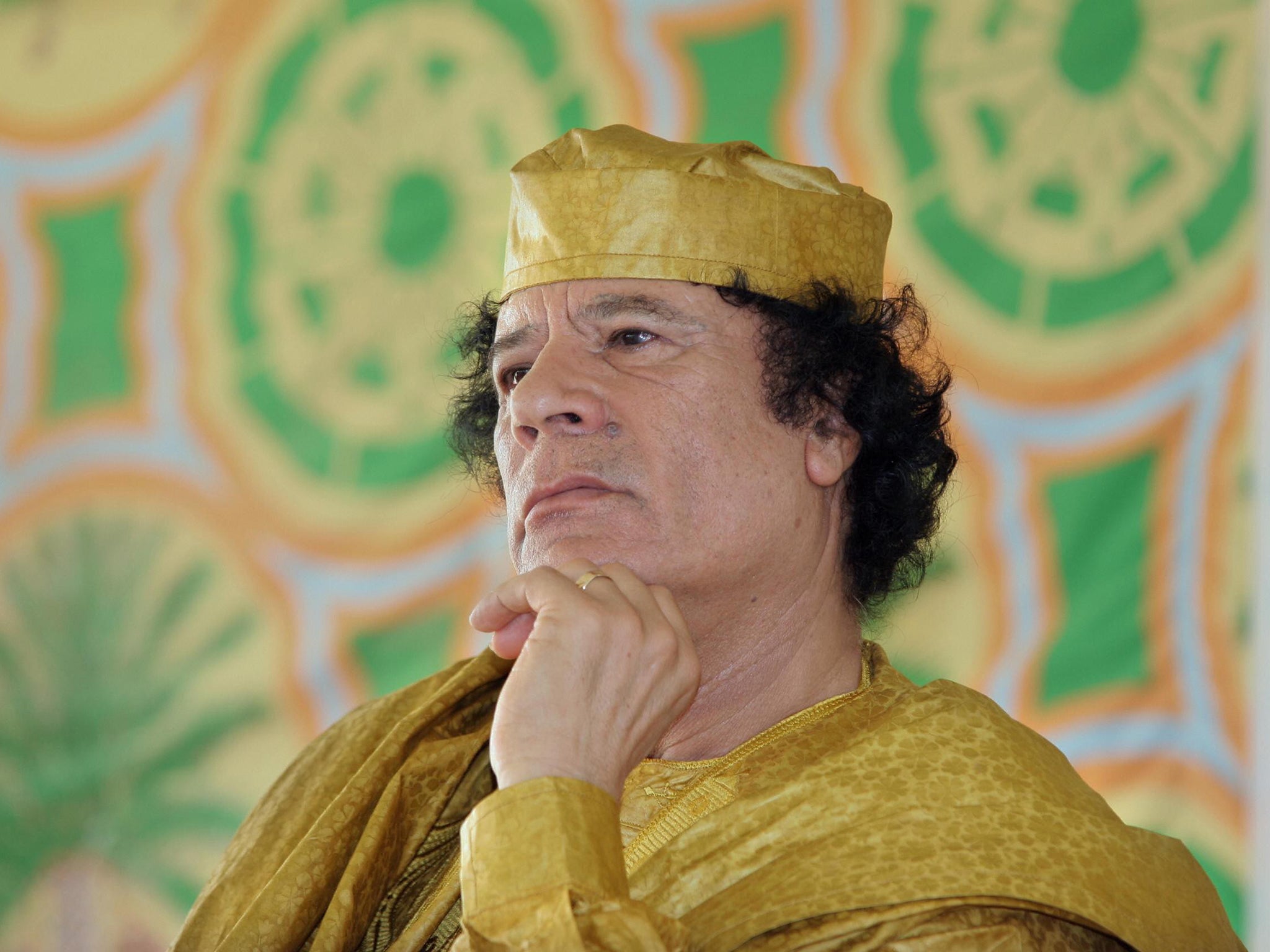Exclusive: Goldman Sachs fights back against Libya over Gadaffi-era rip-off claims

The high profile legal row over whether Goldman Sachs exploited naïve Colonel Gadaffi-era staff at Libya’s sovereign wealth fund has erupted as the bank countersued, claiming the false allegations could damage its good reputation.
The new, post revolution regime at the Libyan Investment Authority claims Goldman charged the fund more than $1bn for several complex derivative investments running up to the Lehman Brothers crisis. The investments subsequently turned out to be practically worthless. The LIA alleges Goldman made a $350m profit on the transactions.
It has argued that Goldman abused the inexperience of the Libyan staff and coerced them into giving the bank the money with inducements including luxury trips to Morocco, gifts and an internship to the brother of a key employee.
However, Goldman has just countersued, pointing out that the LIA had advisers including the former Financial Services Authority chairman Sir Howard Davies, who later resigned his post as director of the London School of Economics over lucrative donations and contracts to the university from the Gadaffis and their regime.
Other advisers included investment banker Lord Jacob Rothschild, Goldman points out, adding that one of the key funds was run by Hatim Gheriani who is now a senior executive at HSBC.
Goldman admits hiring the brother of the fund’s number two, Mustafa Mohamed Zarti as an intern at its London and Dubai offices but said that was only after the last disputed trade was concluded. Coincidentally, reports yesterday said that internship is the focus of an investigation by Wall Street’s Securities and Exchange Commission.
It also admits its lead dealmaker Youssef Kabbaj treated LIA staff to trips to Morocco but said the LIA fund had consented to the bank providing the accommodation and entertainment in writing.
The bank also confirmed Mr Kabbaj “occasionally” brought them small gifts, but said that was nothing out of the ordinary in a bank-client relationship.
However, it strenuously denies the LIA staff were naïve, claiming the key individuals were “perfectly capable” of understanding the nine trades in question.
It argues that the trades were not “procured by undue influence” and claims they only lost money because the financial markets moved against them, rather than them being inherently weak.
It says senior staff at the LIA had banking experience or business degrees and that, anyway, it provided training for them. At issue in the court will be the question of whether such experience was adequate to understand the kinds of complex derivatives the men bought from Goldman’s specialist bankers.
Goldman says it was introduced to the LIA by Chris Malone, a consultant of the controversial Monitor Group management consultancy, which has since admitted it was wrong to accept millions of pounds from the Gadaffi regime to present the dictator in a positive light.
In an apparent bid to make clear that it was far from being the only bank dealing with the LIA, Goldman argues that, at the time the Libyans agreed to invest, they had also made, or were looking to make, investments with Societe General (which the LIA is also now suing), HSBC, Och-Ziff (the hedge fund whose conduct is now the subject of a US investigation) and the London hedge fund Cheyne Capital. Many other banks also held meetings with LIA staff at the Libyan-owned Corinthia Hotel in London including those from RBS, Barclays Capital and Deutsche Bank, the suit contends.
Goldman also denies the Libyan claims that the LIA felt their relationship was like a partnership, arguing it was in fact an arms-length banker-customer relationship, although it admits its key dealmaker, Youssef Kabbaj – who organised the Morocco trips – sometimes addressed the Libyans as “friends” or “team.”
The bank is demanding an unspecified amount of damages and says the case would cause it to suffer loss and damages including cost, time and reputational harm or loss of business.
The first hearing is due next month.
Subscribe to Independent Premium to bookmark this article
Want to bookmark your favourite articles and stories to read or reference later? Start your Independent Premium subscription today.
